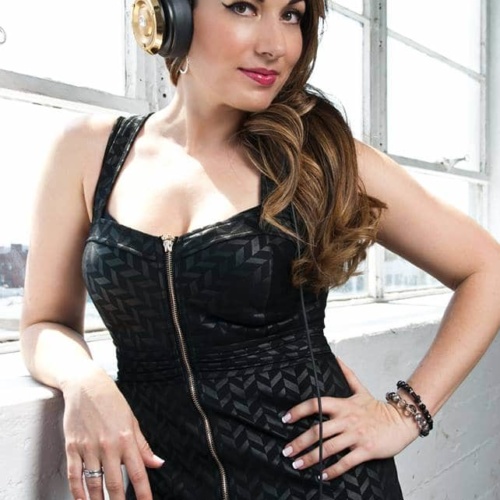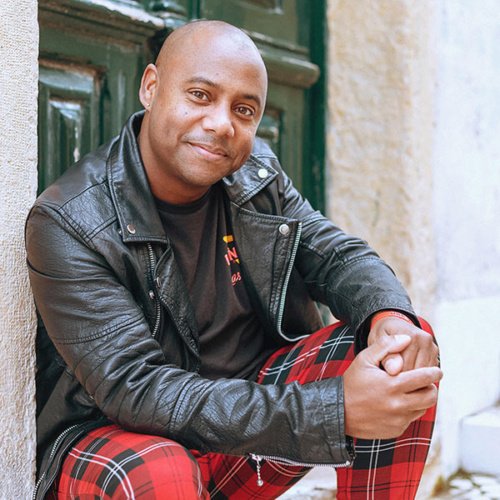Music Career Finder
Survey Start
Radio DJ
Career Overview
A Radio DJ plays music on-air, talks to listeners, and discusses current events, music, news, or other subjects on broadcast, internet, and satellite radio stations. They also interview artists, advertise sponsors, and work to promote their station to the general public.
Alternate Titles
Radio Host, On Air Personality, Radio Personality, DJ, Disc Jockey, Radio Announcer
Avg. Salary
$53,5801
Salary Range
$19K-$105K1

How To Become a Radio DJ
- Career Description
- Salary
- Career Outlook
- Career Path
- Experience & Skills
- Education & Training
- Sources
- References
Career Description
Radio DJs entertain listeners and discuss news, music, or other topics of interest on breaks between songs. They work with Producers and Board Ops (Board Operators) who coordinate on-air interviews, mix and play the music, and sometimes screen calls. Other names for Radio DJs include Disc Jockey, Radio Host, and Radio Announcer.
Radio DJs used to be very influential in determining tastes in the music industry by choosing music for their shows. They had the power to break a fledgling act into the mainstream by playing their music on air. Now, most commercial radio stations use music playlists, which are selected by the Program Director based on market research instead of personal taste.
Except for Independent and College Radio DJs who curate all the music for their shows, today’s commercial DJs are focused more on storytelling, journalistic segments, talking about current events, interacting with listeners, and discussing music and celebrities than on choosing and playing music.
DJs must spend time preparing for their show at the station, checking trending topics on news, music charts, and social media, recording promotions and commercials for on-air, and scheduling their music and talk segments. A typical show lasts 3-5 hours, with breaks for weather and news, contests, concert or event promotions, and banter with listeners who call into the station.
There’s a certain amount of work involved with preparing the production for shows, both before and after the on-air shift. Some Satellite Radio DJs focus exclusively on interviews, politics, or talk radio. Music-oriented Radio DJs may be expected to attend concerts and music industry events as a representative of their station.
Radio host Maxwell said being a DJ today is more than just talking on the radio.
“…The job has evolved into a kind of all-encompassing content creator role over the years,” he said. “We’re tasked with making sure that we’re staying relevant on social media platforms…”
Radio DJ Wendy Wild said you need to feel like a friend to your listeners.
“A Radio DJ is someone who not only plays music and talks between/over songs, but someone who feels like (and is) a friend to their listeners,” she said. “Someone who is relatable, stays on top of the news and pop culture, but also understands the grind of everyday life.”
To learn more about the day-to-day of Radio DJs and how to get a foot in the door in the radio industry, we talked to:
- Brandi Garcia (98.5 The Beat, KDAY 93.5)
- Maxwell (Z100, WNCI 97.9, Nick Radio)
- Wendy Wild (103.5 KTU, Y100.1, My 99.5, Totally 93.9)
Salary
While it might seem like an attractive job to play music and get paid for it, a high salary isn’t the big draw in radio. Most positions are relatively low-paying with about half of Radio DJs earning about $35,000 annually or less. Wild said her first job paid $27,000 a year.
According to the US Bureau of Labor Statistics, the average annual salary for a Radio DJ is approximately $53,600. Salaries for Radio DJs range from about $19,300 to $105,200. When you’re just starting out you could earn quite a bit less than the average.
Despite the salary being on the low side when starting out, Radio DJs report very high job satisfaction, meaning they are generally quite happy in their careers. It makes sense, since music causes the brain to release dopamine, the “feel-good” neurochemical associated with the experience of pleasure. Therefore, it’s not surprising that most Radio DJs are happy in their work.
It’s a fact that the most well-known DJs at top stations make more than everyone else, especially if they are hosting the morning drive-time show. This means that the overnight DJ earnings will likely be at the lower end of the pay spectrum. DJs with the highest name recognition can always earn a decent living. The reality is that the people at the top stations in top markets can earn high salaries, while everyone else earns a lot less.
Hey, what do you think about trying our new Music Career HelperMusic Career Helper really quick? It’s totally free and could help get your career moving fast! Give it a try. It’s totally free and you have nothing to lose.
Career Outlook
There are some negative trends in radio causing the job outlook to be less than rosy. Due to the consolidation of radio and TV announcing and the use of syndicated programming, there is likely to be a decrease in the number of local Radio DJ positions over the next years. This makes it harder for young DJs to break into local radio. However, there is likely to be a stronger demand in larger markets that produce recorded content for broadcast to the rest of the world.
Increasing use of recorded segments might also reduce the demand for On-air DJs for terrestrial radio stations. A DJ can record multiple segments in advance which could then be used for future shows. These trends could always change. When some local Radio DJs leave to serve larger markets, it can open up slots for local DJs starting out in their careers.
Career Path
Most DJs start off working at a college or independent radio station before looking for a paid job at a commercial station. They might work part-time or full-time, working an overnight shift or during the morning or afternoon. Many work their way up the management chain to become a Music Director or a Program Director. Some Radio DJs transition to television or become well-known as On-air Personalities or Radio Hosts.
Radio DJs work for broadcast, satellite, and internet radio stations. Aspiring Radio DJs gain early industry experience volunteering for college or independent radio stations and might then complete an internship at a major station. Some DJs also create and distribute their own podcasts.
Maxwell said interning is one of the best ways to start a career as a Radio DJ.
“I think a lot of people get scared and think it’s unattainable when really it’s as simple as reaching out and seeing if there’s an internship program,” he said. “Then you get the chance to learn while you’re on the job. You get the chance to observe; to be in the studio. So just reach out!”
Wild also agrees that internships are the clearest path forward for aspiring DJs.
“Internships are of the utmost importance,” she said. “Not only do you use your time to learn on the job, but you will most likely be considered for a paid position if one opens up! Plus, many of them you will get college credit for (or might be paid internships!) Use your time wisely and network.”
Garcia took this idea further and said to find a mentor during your internship.
“Try to find one person to take you under their wing,” she said. “Eventually, let them know your aspirations, but take all your work seriously. If you do your job well, people have no choice but to respect you.”
There’s a variety of paths leading to experience and the connections needed to get a job in the industry. While there isn’t one certain way, aspiring DJs prepare and learn by practicing their skills and also need to spend time developing their professional networking and self-marketing abilities.
Local Radio DJs working on terrestrial radio must organize their lives and work around their shift times. DJs working during morning drive time must get up early and are finished by early afternoon, while DJs doing the overnight shift become creatures of the night. Satellite and Internet DJs usually have more flexibility about when and where they work.
Experience & Skills
Professional skills for Radio DJs breaking into the business include having broad musical knowledge and a basic understanding of recording and broadcasting equipment. It’s helpful to have experience with public speaking and be excellent at verbal communication. They should also stay up to date with the latest news, trends, and viral content, and be able to multitask. Because they are being broadcast live, Radio DJs need to be able to think on their feet and remain calm under pressure.
Do you need a degree to become a DJ? Maxwell said it can help, but it’s not necessary.
“It helps because they’re going to teach you some of the basics of radio; the things I do on a daily basis,” he said. “But this is a hands-on industry. You’ve got to dive in there and just do it.”
Garcia agrees with that idea, saying you shouldn’t go to school to be a radio DJ unless the school has a job placement program.
“The best training in my personal experience is hands-on,” she said. “Just get your foot in the door.”
Having an outgoing personality, a sense of humor, and the ability to keep talking even when things go wrong or there is breaking news, are useful attributes for the On-air Radio DJ. They should have good interpersonal skills and be able to engage with listeners on the fly. Besides playing music, Radio DJs need to announce songs and give other information related to the songs, such as concert dates for an artist or how a song is doing in the charts.
DJs could be expected to talk about other things, too. For example, they might read local or national news stories, weather forecasts, and traffic updates on the air. They could be responsible for taking calls and talking on-air to listeners. They might conduct interviews between songs. They typically spend time when not on the air doing research into topics they will discuss on their show. Sometimes they write scripts and also schedule the music to be played for upcoming shifts.
As Radio DJs often become local celebrities, the job could include public appearances. They may be invited to special events and be asked to emcee at festivals or charity fundraisers. They might also be asked to read advertisements for station sponsors and advertisers.
Wild said you should also be tech-savvy and know how to operate computers well. Maxwell said the programs his radio station used are NextGen and VoxPro.
But most importantly, you have to be comfortable with who you are and stay authentic.
“…Aside from all the technical things that you need to know, the biggest thing is to just own who you are,” Maxwell said. “Be comfortable. Whether it’s quirky, intelligent, poignant: just be you.”
Education & Training
There are no specific educational requirements to become a Radio DJ, although a station might look for a DJ with a degree for a specific kind of show. Some aspiring DJs attend classes to learn the technical aspects of the job, while others may have developed sufficient knowledge in this area from a young age, for example as musicians or in audio engineering.
The educational requirements vary by station. A passion for music and some knowledge of the industry plus a high school diploma might be enough for some stations. For example, if you’ve used DJ equipment on music gigs you’ve done, had some public speaking experience, and know about music, the station might see that as sufficient background starting out. Other stations might want their DJs to have degrees in broadcasting, journalism, or communications.
Sources

Brandi Garcia
Brandi Garcia is a DJ at 98.5 The Beat in San Antonio.
Although born in Michigan, Garcia got her start in Tallahassee, FL, where she first worked as an Intern at a local radio station while still in high school. While attending Florida State University, she simultaneously worked at her college radio station and a local hip-hop station. Her first full-time on-air gig was doing middays at Huntsville, AL station Power 93.3.
She also started making mixtapes and DJing concerts and events. From there she moved to Houston’s 97.9 The Box, where she opened up for Drake, Ludacris, Jay-Z and 50 Cent. She also hosted her own entertainment show on an NBC affiliate, and received the Justo award for “Best Female Mixtape DJ.” From Houston, she moved to Hollywood, where Garcia became the weekday mid-day on-air personality and Music Director at LA classic hip-hop station KDAY.
Her career has been profiled and mentioned by AdWeek, Houston Press, Red Bull, Lala’s World, AXS Live, OC Register, Resident Advisor, Road to the Riches, Business Wire, and Essince.

Maxwell
You can catch Maxwell on the world-famous Z100 in New York, weeknights from 6-10pm and on iHeartRadio’s heritage Top 40 radio station, WNCI 97.9 in Columbus, Ohio. He is also heard on over 180 radio stations across the globe on the syndicated “Most Requested Live, with Romeo” show as the premiere guest interviewer. Conducting interviews with stars like Ed Sheeran, Lady Gaga, Harry Styles, and more, he has proven to be one of the most sought after in the industry. A true friend of the stars. Teaming up with Nick Cannon on the “TeenNick Top 10 Countdown”, Maxwell has acted as co-host for the television show and also entertains on Nick Radio, Nickelodeon’s go-to for “All The Hits & All The Slime!”
A hybrid radio personality and pop culture correspondent, Maxwell has the unique ability to extract personal truths from the most celebrated artists in music and entertainment today. His conversational interview style coupled with the demeanor of a veteran journalist creates a genuine exchange that both informs and entertains audiences worldwide.

Wendy Wild
Wendy first fell in love with radio as a pre-teen, listening in awe of her radio idols. Despite being shy, she knew that this is what she wanted to do. Her first internship was at her local radio station at 17 years-old, while simultaneously working as an ice rink DJ.
Working her way through the ranks, Wendy eventually found her way to her dream job, hosting, entertaining and connecting with listeners during the workday hours.
Currently heard middays on 103.5 KTU, ‘The Beat of NY’ Wendy also lends her voice to Y100.1 in Southwest Florida, My 99.5 in Salt Lake City, and Totally 93.9 in Miami. In addition, Wendy’s ‘What’s Up With Wendy’ segment airs weekends on The Weekend Throwdown with Jagger, a nationally syndicated program with approximately 35 affiliates and counting. She provides various voice-overs for commercials, promos, and programs such as The Weekend Top 30 Countdown.
In the past, she has also been heard on Mix 106.1 in Philadelphia, Nick Radio on iHeartRadio, The All New 95.1 in Albuquerque, NM, 93-1 The Party in Las Vegas, 95-5 The Bull in Las Vegas, New Haven’s legendary KC101, and the world-famous Z100 in New York City.
In addition to her busy radio career, Wendy is also a co-host/producer of the Tales Over Cocktails podcast and the newly launched Give Our Take podcast, which she created to focus on current events, politics and ways we can all make positive change.
While not on the air or podcasting, Wendy has been called a “collector of hobbies” and loves to learn new skills. With a gymnastics background, she has experience in aerial arts (flying trapeze, aerial silks, and static trapeze), but these days mostly enjoys creating content for social media and brand partnerships. She’s used time during quarantine to fine-tune her photography skills and video/photo editing using programs such as Adobe Photoshop, Lightroom and Premiere.
The name “Wild” may be a little misleading, as Wendy is more of a homebody who would much prefer binging Star Trek Next Generation, or taking pictures of a sunset, but the name was a gift given at the start of her career and it stuck.
References
- 1US Bureau of Labor Statistics. "Broadcast Announcers and Radio Disc Jockeys". Division of Occupational Employment Statistics. published: March 31, 2020. retrieved on: June 23, 2020